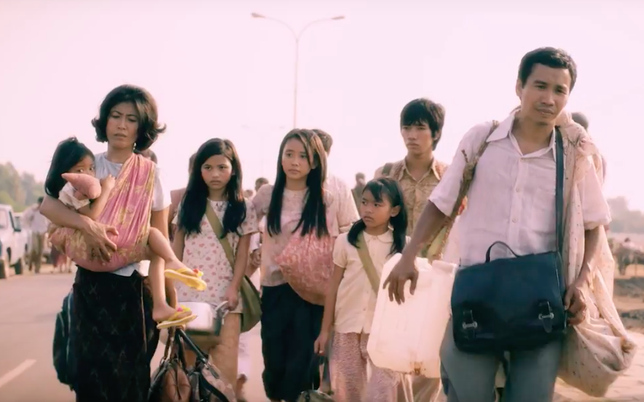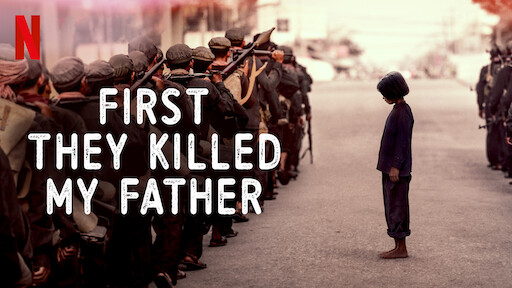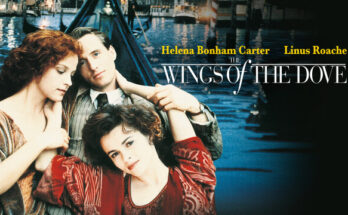Full Movie:
First They Killed My Father (2017) – Movie Review
Directed by Angelina Jolie and based on the memoir by Loung Ung, First They Killed My Father is a harrowing and deeply personal account of life under the Khmer Rouge regime in Cambodia. Told through the eyes of a five-year-old girl, the film captures the emotional and psychological toll of war, displacement, and survival in one of the darkest chapters of the 20th century.

Set in 1975, the story begins with Loung and her family enjoying a comfortable life in Phnom Penh. That world is shattered when the Khmer Rouge seizes power, forcing the family to flee their home and abandon their identities. What follows is a descent into unimaginable hardship—labor camps, starvation, separation, and the constant threat of violence. Jolie’s decision to tell the story almost entirely from the child’s perspective makes it all the more affecting. We see the world as Loung sees it—confusing, terrifying, and unfair—and this limited lens heightens the emotional weight.
Sareum Srey Moch gives a haunting performance as young Loung, conveying a wide range of emotions with minimal dialogue. Her expressive eyes and restrained movements speak volumes about the trauma she endures. Jolie’s direction is restrained and respectful; she doesn’t exploit the violence but allows the silence, the fear, and the quiet moments to speak just as loudly as the more graphic scenes.

The cinematography by Anthony Dod Mantle is visually stunning, often juxtaposing the natural beauty of Cambodia with the stark brutality of war. The use of the Khmer language throughout the film lends authenticity and centers Cambodian voices in telling their own story—an important choice that elevates the narrative.
More than a war film, First They Killed My Father is about memory, resilience, and the human spirit. It doesn’t offer easy answers or redemption but instead honors the lives lost and the strength of those who endured. Jolie, whose adopted son Maddox is Cambodian, approaches the material with empathy and care, making this not just a political film but a personal one.
It’s a powerful and necessary watch—a film that educates, moves, and lingers long after the credits roll.
What do you think about this movie? Let a comment below!



